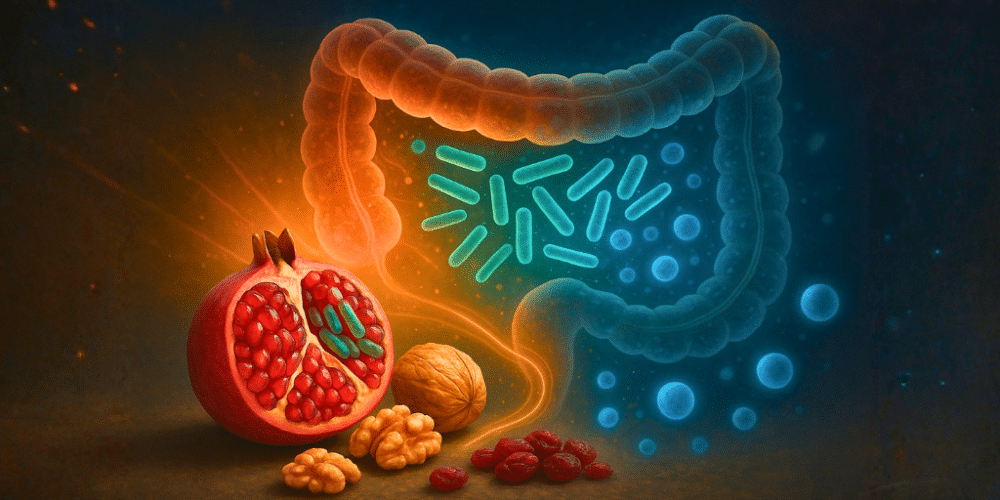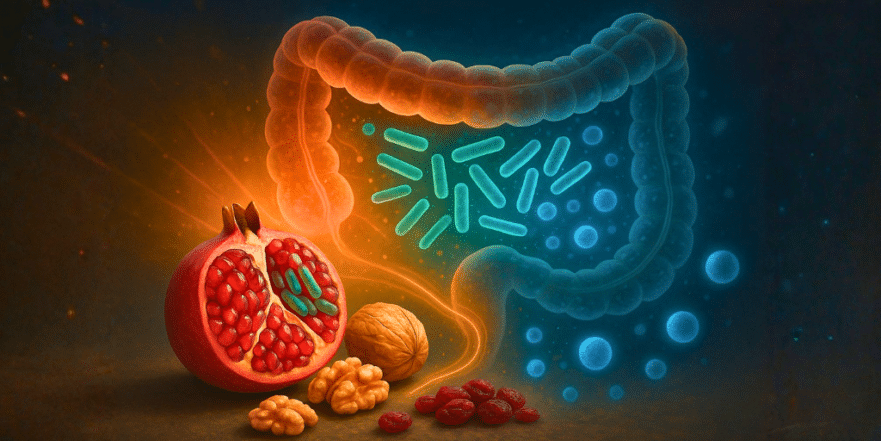
Have you noticed the headlines? Colon cancer, a disease we used to associate with older adults, is now being diagnosed in people in their 30s, 20s, and even teenagers. It’s a shocking and concerning trend that leaves many of us asking, “What is going on?” The answer, for the most part, isn’t hidden in our genes. The vast majority of cancers are directly linked to our diet and lifestyle. The good news is that this puts a tremendous amount of power back into your hands. Your body has incredible, built-in defense systems designed to protect you from diseases like cancer, and you can actively strengthen them.
In this article, we’re going to dive deep into the world of colon cancer. We’ll explore why it’s on the rise and, more importantly, what you can do about it. We’ll uncover the lifestyle risks you need to avoid and introduce you to the revolutionary treatments that are changing the game. By the end, you’ll have practical, actionable steps to fortify your body’s natural defenses and take control of your health. This isn’t about fear; it’s about empowerment. (Based on the insights of Dr. William Li)
Key Takeaways
- Lifestyle is Paramount: The rise in colon cancer, especially in younger people, is primarily linked to diet and lifestyle choices, not genetics. Processed meats, alcohol, smoking, and a sedentary life are major risk factors.
- Your Immune System is a Superhero: Your body has a natural defense system that constantly patrols for and eliminates microscopic cancers. Supporting this system is crucial for cancer prevention.
- Immunotherapy is a Game-Changer: This revolutionary treatment activates your own immune system to fight cancer, offering hope for even late-stage diagnoses. It’s vital to ask your doctor if you are a candidate.
- Gut Health is Central: A healthy gut microbiome is essential for a strong immune response and can significantly improve the effectiveness of treatments like immunotherapy. The foods you eat directly influence your gut health.
- Food is Medicine: You can actively fight cancer and support your treatment by eating specific foods that starve cancer cells, reduce inflammation, and boost your immune system.
1. What is Colon Cancer and Why Are Younger People Getting It?
First, let’s get clear on what we’re talking about. Colon cancer is a cancer of your large intestine, or bowel. It’s one of the most common cancers affecting both men and women, and the rising rates among young adults are a major red flag. When I was in medical school, seeing a 50-year-old with colon cancer was unusual. Now, it’s becoming tragically common in much younger populations. So, what’s the culprit? It’s highly unlikely to be a sudden, widespread genetic mutation. The evidence points overwhelmingly toward our environment and our habits. Is it toxins in our water? Microplastics? Or, most likely, is it something we’re eating—or something we’re not eating? The link between diet, lifestyle, and this disease is stronger than ever, which is why understanding these factors is your first line of defense.
2. Lifestyle Habits That Fuel Cancer (And How to Stop Them)
If you want to protect yourself, you need to know what you’re up against. Certain lifestyle habits create an environment in your body where cancer can thrive. Processed meats like hot dogs, salami, and deli meats are a big one; the World Health Organization has classified them as carcinogens. When you eat them, the chemicals they contain, like nitrosamines, sit in your colon and create an inflammatory environment. Alcohol and smoking (including vaping, which can be even nastier chemically) also significantly increase your risk. Then there’s a sedentary lifestyle. Sitting around all day throws your metabolism and hormones out of whack, increases inflammation, and harms your gut microbiome. The common thread among all these risk factors? They suppress your immune system, weakening one of your body’s most critical defenses against cancer.
3. Meet Your Body’s Built-In Cancer-Fighting Army
Your body is not helpless against cancer. It has at least five major health defense systems, and your immune system is one of the most powerful. Think of your immune system as an army of super-soldiers constantly patrolling your body, like cops on a beat, looking for trouble. When they spot a problem, like a tiny, microscopic cancer, they rush to the site and take it out. This happens all the time without you even knowing it. Another defense system works to prevent tumors from getting a blood supply, a process called angiogenesis. A cancer can’t grow bigger than the tip of a ballpoint pen without blood vessels to feed it oxygen and nutrients. If you allow blood vessels to reach a tiny tumor, it can grow 16,000 times in size in just two weeks. Your body naturally tries to stop this, and many modern cancer treatments, called anti-angiogenic therapies, are designed to do the same by cutting off the blood supply to tumors.
4. Immunotherapy: The Revolutionary Treatment You Need to Know About
This is one of the most exciting developments in modern medicine. Immunotherapy is not chemotherapy. It’s a treatment that supercharges your own immune system to go after cancer. It’s like upgrading from two cops in a patrol car to calling in the entire army. By activating your body’s natural defenses, we can achieve things we once only dreamed of. We’ve seen immunotherapy take patients with stage four, “game over” cancer and turn it into stage zero. It’s a true revolution. Drugs called “checkpoint inhibitors” (you may have seen commercials for Keytruda) work by pulling the invisibility cloak off cancer cells, allowing your immune system to finally see and attack them. If you or a loved one is diagnosed with cancer, you must ask your doctor, “Has my tumor been tested to see if I’m eligible for immunotherapy?” They will look for specific markers (like MSI-H, PD-1, and PD-L1) that indicate if your cancer is likely to respond to this life-saving treatment.
5. Your Gut Health: The Unsung Hero of Cancer Treatment
Here’s where it gets even more interesting. For immunotherapy to work effectively, you need a healthy gut microbiome. Your gut is home to 39 trillion bacteria, and these tiny organisms play a huge role in your health. They lower inflammation, regulate your metabolism, and—critically—they communicate with and support your immune system. An unhealthy gut, a condition called dysbiosis, may be one of the hidden factors contributing to cancer development. Research has shown that cancer patients with a healthy, diverse gut microbiome respond much better to immunotherapy. This connection is so powerful that the bacteria in your gut can be the difference between a treatment working or not. This is why nurturing your gut health is no longer optional; it’s a critical part of any cancer-fighting strategy.
6. Stock Your Kitchen with These Cancer-Starving Foods
So, how do you build a healthy gut and support your body’s defenses? With your fork. The foods you eat three times a day can be your most powerful tool. Focus on whole, plant-based foods packed with dietary fiber and polyphenols (the compounds that give plants their vibrant colors). These feed your good gut bacteria, which in turn lower inflammation and activate your immune system. Here’s a quick shopping list:
- Dietary Fiber: Aim for fruits, vegetables, nuts, and legumes. One study showed that for every 5-6 grams of fiber (the amount in a medium pear), melanoma patients on immunotherapy had a 30% reduction in mortality.
- Polyphenol Powerhouses: Load up on colorful foods like berries, bell peppers, and dark leafy greens. Coffee and green tea are also excellent sources; green tea contains catechins that can help starve cancers of their blood supply.
- Brassica Vegetables: Broccoli, kale, Brussels sprouts, and arugula contain natural chemicals like sulforaphane that have cancer-starving properties.
- Beans and Legumes: White beans, black beans, chickpeas, and soybeans are fantastic sources of fiber.
- Healthy Fats: Extra virgin olive oil contains polyphenols that fight inflammation. Omega-3 fatty acids, found in seafood like salmon, sardines, mackerel, and even shrimp and clams, also help cut off the blood supply to cancers.
7. Akkermansia: The Superstar Gut Bacteria You Can Grow Yourself
In the world of gut bacteria, one name is emerging as a true superstar: Akkermansia muciniphila. Groundbreaking research found that cancer patients who had high levels of Akkermansia in their gut responded dramatically better to immunotherapy, while those who lacked it did not. This single bacteria can make all the difference. While you can now find Akkermansia in probiotic form, you can also encourage its growth naturally through your diet. Foods containing compounds called ellagitannins are particularly effective. You can find them in pomegranates, walnuts, dried cranberries, and Concord grape juice. Other foods shown to boost Akkermansia include oats, chili pepper flakes, and Chinese black vinegar. This research is moving fast, and it highlights a future where we will combine immunotherapy with targeted probiotics and nutrition to create an incredibly powerful partnership against cancer.
8. How to Be Your Own Best Health Advocate
There has never been a better time to be a patient when it comes to the hope offered by new treatments. But this hope requires you to be an active participant in your care. When you talk to your doctor, ask questions that go beyond the standard surgery, chemo, and radiation. Ask, “Can I get a cancer-starving, anti-angiogenic treatment?” Ask, “Am I eligible for immunotherapy?” If you’re told no, ask why. Do your own research on websites like clinicaltrials.gov to see what new studies are available for your type of cancer. You are your own best advocate. Combining the best of modern medicine with the power of your own lifestyle and dietary choices is the key to tipping the odds in your favor.
Conclusion
A cancer diagnosis is a scary and life-altering event. But it’s crucial to know that we are in an era of unprecedented hope and progress. The power to fight back doesn’t just lie in a clinic or a prescription; it lies within your own body and the choices you make every single day. By understanding the risks, embracing a healthy lifestyle, and advocating for cutting-edge treatments like immunotherapy, you can activate your body’s incredible healing capabilities. This is not about food versus medicine; it’s about food and medicine working together to give you the best possible chance to live a long, healthy life.
Source: Dr. William Li

